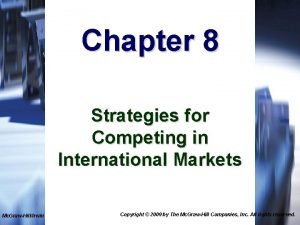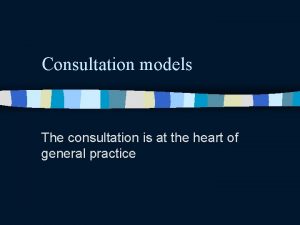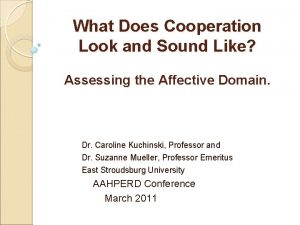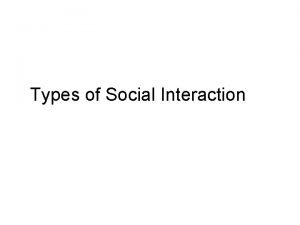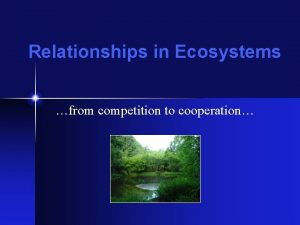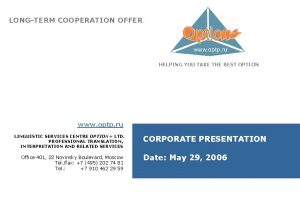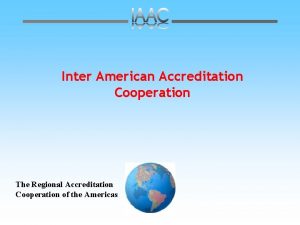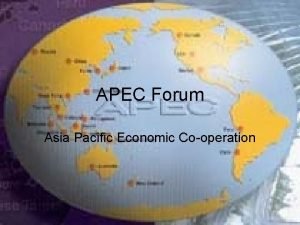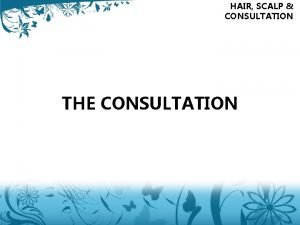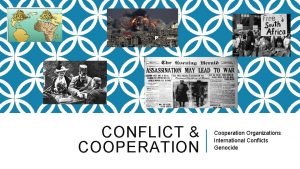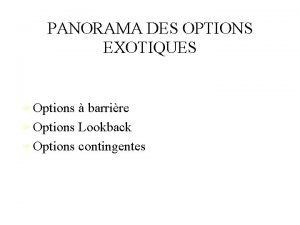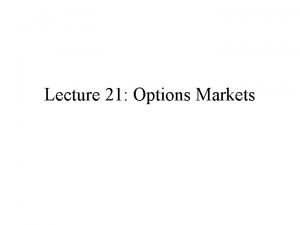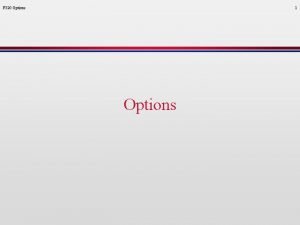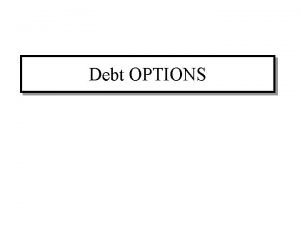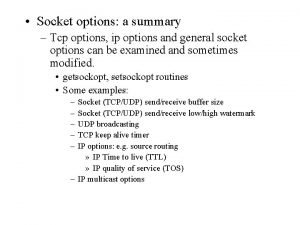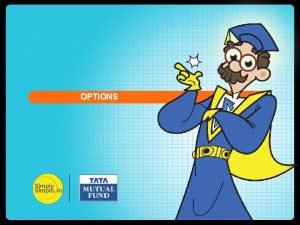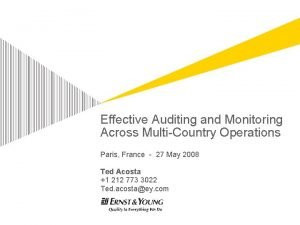Options for a Multicountry Consultation and Cooperation Mechanism













- Slides: 13

Options for a Multicountry Consultation and Cooperation Mechanism (MCCM) for the STAS Andrew Ross Ph. D Consultant UNESCO A Ross 29 July 2015 Johannesburg

MCCM rationale and objectives • Institutionalize GGRETA project driven cooperation among STAS countries • Short-term objectives: – continue joint study of STAS – institutionalize collection and exchange of comparable information, feeding STAS IMS • Long-term objective: – expand from data collection and exchange to joint preparation of strategies and advice to STAS countries on STAS management issues

MCCM value-added • MCCM can do better than STAS countries can do separately. It can: – Bring a joint STAS vision and perspective – Consistency of direction and purpose of domestic STAS-related action – Joint control of flow of data and information feeding IMS

Options for MCCM • Two options are presented here: – Coordinating STAS Committee – Standing ORASECOM committee • The advantages and disadvantages of each option are analyzed in terms of; – core tasks; – structure; – legal arrangements; – funding.

Option 1 -coordinating committee • Core tasks – Monitor STAS through regular collection and exchange of data – Attract donor funding – Advise STAS countries on application of SADC GW guidelines and liaise with SADC and ORASECOM • Structure – Steering committee of senior government groundwater officials acting as focal points in STAS countries meeting at regular intervals on a rotation basis – Research institutions in each STAS country provide scientific input – No separate multicountry support or Secretariat facility – Formal link with SADC eg regular reporting to SADC Secretariat, SADC Groundwater Management Institute (GMI) in particular • Legal – MOU signed by Water Ministers could bring committee into being • Funding – STAS countries would host meetings of coordinating committee, and provide administrative support, in rotation

Option 2 Standing ORASECOM committee • Core tasks: – same as Option 1 (but liaison with ORASECOM is internalized) • Structure: – upgrade existing hydrogeology subcommittee of ORASECOM technical task team to hydrogeology standing committee of country representatives • Legal arrangements: – ORASECOM Council decision required to approve upgrade • Funding: – Each country funds its representatives on the committee

Comparison of options • Option 1 + Ownership by STAS countries, Good visibility, Independence from external support for functioning – Relative impermanence of committee, Dependence on rotating host country priorities and political agenda • Option 2 + Few additional administrative costs – Limited visibility among other ORASECOM projects, subordination to ORASECOM, competition with Lesotho’s priorities, competition with other transboundary aquifers in Orange Senqu basin • Advantages shared by both options + Rely on existing institutions + Could be brought into effect rapidly + No additional administrative body

Discussion • Option 1, the coordinating committee is preferred. The project would have good visibility, and would receive maximum attention and priority from the committee. Continued support for the project from the three countries would increase the likelihood that the committee would persist and be effective.


Questions for discussion • What would be the most important characteristics of a MCCM? • What issues could encourage or discourage the establishment and continuation of a MCCM?

Thank you for your attention a. ross@unesco. org Telephone 33 (0)1 45 68 39 43


STAS CORDINATING COMMITTEE (OPTION 1) FOCAL POINT BUT (DWA) SADC SECRETARI AT RESEARC H INSTITUT ION (? ) ORASECO M GMI FOCAL POINT NAM (DWA) RESEARC H INSTITUT STEERIN G COMMIT TEE FOCAL POINT RSA (DWA) RESEARCH INSTITUTI ON (WRC)
 A think local act local multicountry type of strategy
A think local act local multicountry type of strategy Agriculture cooperation and farmers welfare
Agriculture cooperation and farmers welfare Neighbour consultation model
Neighbour consultation model Calgary cambridge model nhs
Calgary cambridge model nhs What does cooperation look like
What does cooperation look like Social interaction cooperation
Social interaction cooperation International laboratory accreditation cooperation (ilac)
International laboratory accreditation cooperation (ilac) European cooperation for accreditation
European cooperation for accreditation Cooperation relationship ecosystem
Cooperation relationship ecosystem Offer for cooperation
Offer for cooperation Inter american accreditation cooperation
Inter american accreditation cooperation Asia pacific economic cooperation forum
Asia pacific economic cooperation forum Cooperative advantages and disadvantages
Cooperative advantages and disadvantages Cooperation social interaction
Cooperation social interaction
